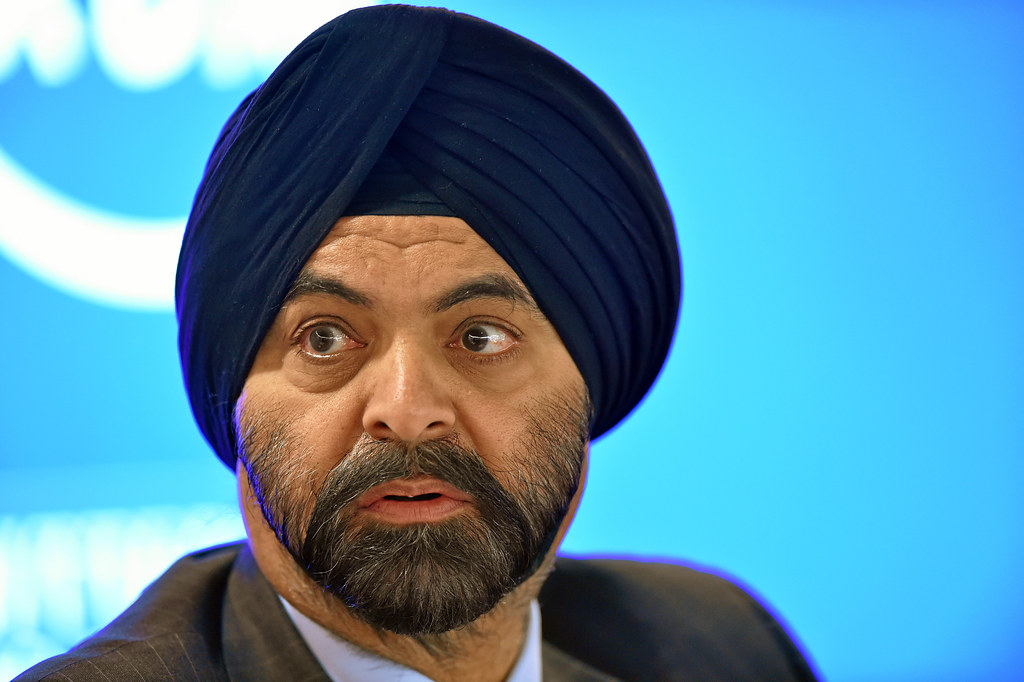Yesterday, Good Jobs First released an important report on corporate price-fixing across the economy. Price-fixing is a white-collar crime and a serious violation of antitrust law. Reviving antitrust law is a centerpiece of President Joe Biden’s domestic economic policy agenda, and one of the policies with which he is most associated.
But Biden has also nominated Ajay Banga to lead the World Bank. Banga was the executive chairman of Mastercard for 10 years. According to the Good Jobs First report, Mastercard has paid $3.2 billion since 2005 in fines and penalties for price-fixing, the fourth-highest total of any American company.
Mastercard’s largest penalty for price-fixing came down on December 16, 2019, one year before Banga left Mastercard. The company allegedly colluded with most of the biggest American banks, and its biggest direct competitor, Visa, to raise the swipe fees paid by merchants who take credit cards. In 2019, Mastercard paid $2.1 billion to settle a class-action lawsuit brought by a coalition of over 12 million retail businesses. Visa, in turn, paid $4.1 billion, which is why it sits at the top of Good Jobs First’s list of highest-fined price-fixers. The court believed the combined settlement to be “the largest cash settlement in antitrust class action history.” It covered “all persons, businesses, or other entities,” with a few exceptions, that accepted Visa or Mastercard in the United States from 2004 through 2019.
The case lasted the entirety of Banga’s tenure as Mastercard CEO. In 2018, Mastercard’s lawyers worked to specifically shield Banga from testifying. They argued that testimony from his colleagues, such as Mastercard’s chief legal officer, ought to be sufficient for the plaintiffs’ needs. “Burdening Mr. Banga with an unquestionably cumulative deposition is unjustified,” the lawyers wrote to the judge. The two sides eventually resolved the question of Banga’s testimony out of court.
Preventing a CEO from testifying in court is a classic corporate tactic to limit the boss’ liability in a white-collar crime case. Under any intuitive understanding of how corporations work, Banga is obviously responsible to some extent for his firm’s lawbreaking, especially when that lawbreaking is as organized and central to the company’s strategy as a price-fixing scheme. It is interesting how CEOs like Banga soak up all of the credit when their companies receive praise, but are somehow never responsible when their companies break the law.
Swipe fees have attracted the ire of Biden’s Director of the Consumer Financial Protection Bureau Rohit Chopra, who was a fervent supporter of reviving antitrust enforcement when he was a Federal Trade Commissioner during the Trump administration. Chopra told CNBC last year that Mastercard and Visa’s plan to “hike fees at a time of inflation” added insult to injury. “We don’t have a competitive payments system. Many businesses cannot survive if they stop accepting Visa and Mastercard. So it’s something that we’re looking at carefully and honestly at a time of inflation. It just doesn’t seem like the right thing to do.”
Biden appeared alongside Chopra to support a widely-praised push against junk fees, which are hidden fees added onto consumer transactions. In general, consumers end up paying the cost for inflated swipe fees as well: notably, the short-selling firm Hindenburg Research recently accused the payments firm Block of taking illegally high swipe fees, to the point where some retailers that use Block end up charging a few extra dollars for consumers who want to pay by card.
Biden’s decision to nominate Banga to the World Bank reflects a trend of contradictions between his domestic and international economic policies, particularly on antitrust. I wrote for Common Dreams last week about Commerce Secretary Gina Raimondo promoting policies that aid Big Tech monopolists even as other Biden appointees try to break up these firms at home.
Overlooking Banga’s price-fixing, even as Biden has correctly castigated price-fixing as one driver of inflation, would further reinforce that the President seems to see corporate entities as simple nodes of American power. In fact, any rational read of the age of globalization — from which Biden is often said to be shifting away — should indicate that corporations serve no master. As Daniel Bessner wrote in The Nation, “Capital, it appears, doesn’t really care what ideology a given state embraces.”
Mastercard’s ad slogan tells us that “There are some things money can’t buy.” It seems reputation-laundering is not one of them.
PHOTO CREDIT: “Fostering Financial Inclusion: Ajay S. Banga” by World Economic Forum is licensed under CC BY-NC-SA 2.0.

